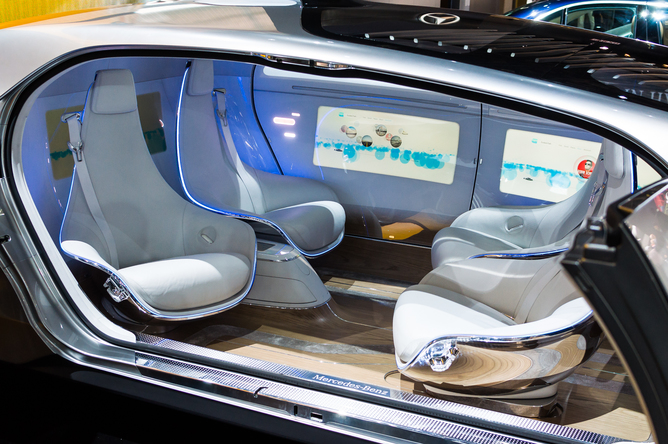Yet crashes will still happen, and there is a debate about how those will be handled. Right now, automobile deaths that don't start off as heavily risky (drunk, high) involve a great deal of bad luck and perhaps a modicum of skill. Artificial intelligence tasked with deciding what to do as an accident occurs will have to get socialist about it, according to a new paper; choosing the course of action that will help the many at the expense of the few.
The first rule for the autonomous vehicle (AV) crash-mitigation technology is avoiding collisions with pedestrians. From there, it weighs factors such as relative speeds, angles of collision and differences in mass and vehicle type to determine the best possible maneuver, such as braking or steering in one direction or another.

Gust, CC BY-NC-ND
"We consider the whole traffic environment perceived by the autonomous vehicle, including all the other vehicles and obstacles around it," said Dongpu Cao, engineering professor at University of Waterloo.
Accidents will still happen, just far fewer
Regardless of how good the program in a self-driving vehicles is, accidents will happen. Weather conditions will always be a concern, and there are other variables that can make a difference as well. If a boulder breaks off and comes into the road, an AI will have to decide what to do.
AI will capable of limiting damage when a crash is unavoidable because they always know what is happening around them via sensors, cameras and other sources, and routinely make tens and even hundreds of decisions per second based on that information.
The new system being developed at the University of Waterloo decides how an AV should respond in emergency situations based primarily on pre-defined mathematical calculations considering the severity of crash injuries and damage.
Researchers didn't attempt to factor in extremely complex ethical questions, such as whether an AV should put the safety of its own occupants first, or weigh the well-being of all people in a crash equally. But when carmakers and regulators eventually hammer out the ethical rules for self-driving vehicles, Khajepour said, the system framework is designed to integrate them.





Comments